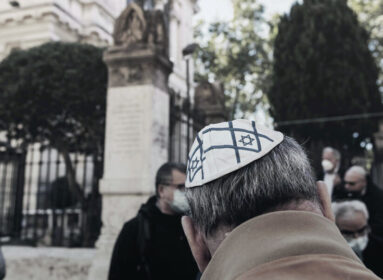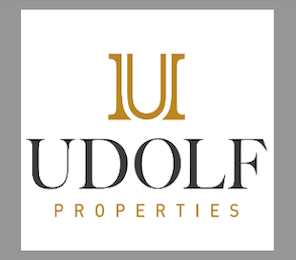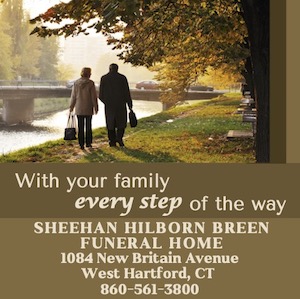A renowned gay Orthodox rabbi examines the nexus between Judaism and inclusion.
By Cindy Mindell
STAMFORD – Two years have passed since the Committee on Jewish Law and Standards of United Synagogue of Conservative Judaism unanimously approved two model same-sex marriage ceremonies. The end result of a long and difficult debate, the decision brought the movement closest to Orthodoxy into territory only inhabited by the more liberal Jewish denominations – Humanistic, Jewish Renewal, Reconstructionist, and Reform, long known for their welcoming stances toward LGBT (lesbian, gay, bisexual, transgender) Jews.
To date, none of the Orthodox denominational branches has sanctioned same-sex marriage or LGBT Jews. In 1993, under the pseudonym Rabbi Yaakov Levado, Orthodox rabbi Steven Greenberg began to reveal his struggle as an Orthodox Jew and a gay man in the pages of Tikkun magazine. He finally came out publicly in a 1999 interview in the Israeli newspaper Ma’ariv the first openly gay Orthodox rabbi in the U.S.
Greenberg will present “The Pain and Pleasure of Difference: How an Exclusive People Commits to Inclusion” at the Third Annual Saul Cohen-Jewish Family Service Lecture on Thursday, Nov. 13 in Stamford.
Greenberg is a Senior Teaching Fellow at CLAL, a New York-based think tank, leadership training institute, and resource center, where he is also director of the CLAL Diversity Project. He is the author of the book, Wrestling with God and Men: Homosexuality in the Jewish Tradition (University of Wisconsin Press, 2004), which was awarded the 2005 Koret Jewish Book Award for Philosophy and Thought.
Greenberg is a founder and co-director of Eshel, an Orthodox LGBT community- support and education organization, and serves on the faculty of the Shalom Hartman Institute of North America. He is a founding member and educational advisor of the Open House in Jerusalem, an organization that advances the cause of social tolerance. He lives in Boston with his partner, Steven Goldstein, and his daughter, Amalia.
Greenberg received his BA in philosophy from Yeshiva University and his rabbinical ordination from YU’s Rabbi Isaac Elchanan Theological Seminary. He is a graduate of the two-year Jerusalem Fellows program for senior Jewish educators, sponsored by the Mandel Institute. He was named among “America’s Top 50 Rabbis for 2012” by The Daily Beast.
The annual JFS lecture series honoring Stamford resident Saul Cohen was established by his wife, Mimi, as a way to recognize an organization that the couple has long supported. In addition to the public lecture, Greenberg will facilitate a leadership seminar for Jewish communal professionals and meet with the JFS Jewish Twenties & Thirties group.
Greenberg spoke with the Ledger about what Judaism has to say about inclusion.
Q: How do you as an Orthodox rabbi define “belonging?”
A: Belonging is meaningful if it shapes a community with social expectations and boundaries. Welcoming the ‘other’ is also in the Jewish cultural DNA. The classical mitzvah of welcoming in strangers can shed new light on the challenges of inclusion. A group that openly welcomes everyone isn’t a group. Group identity, by definition, entails boundaries that in various ways exclude others. Often, the more naturally exclusive, the more prestigious and the more intensely fulfilling. The difference between a group of pick-up game regulars and an Olympic team come to mind. Both are groups, there are boundaries for both – but very different ones.
Otherness has many faces. It can be someone not of the family, or not of the larger tribe, someone poor or handicapped, someone who does not share our affinity or someone who is just otherwise not like “us.”
Q: In your work, you talk about “contemporary boundary questions.” What do you mean by that?
A: The boundaries between religious and secular Jews, between different kinds of religious Jews, between Jews and non-Jews, and between men, women, and others in-between. Contemporary boundary questions embrace the value of familiarity on the one hand and the duty to disturb it with difference on the other. Jewish sensibilities are communal but porous. They mark the difficulty of dealing with difference, and still obligate us to stretch toward difference anyway and then promise that the encounter will enrich us.
Q: What is the CLAL Diversity Project and what does your work entail at the various organizations of which you are a part?
A: I have worked at CLAL and now at Shalom Hartman Institute [of North America] to help Jewish leaders translate and apply the best of Jewish wisdom to the challenges of modern life in America. However, most of my time is dedicated to working with gay Orthodox Jews and their families. The CLAL Diversity Project began as a way to support these efforts first in 2001, when I and filmmaker Sandi Dubowski carried the film Trembling Before God, a film about gay Orthodox Jews, to over 500 screenings around the world and then with the development of intellectual resources culminating in a book, Wrestling with God and Men: Homosexuality and the Jewish Tradition.
But most recently, I am a founder and co-director of Eshel, a support, education, and advocacy organization for LGBT Jews from Orthodox communities. Eshel runs retreats and creates a support network for LGBT Jews and since 2012, and has run national and regional retreats for the parents of LGBT kids.
Q: What does it mean to you to be named among The Daily Beast’s “America’s Top 50 Rabbis?”
A: It’s very sweet encouragement. My mom and dad were proud. But in truth I don’t put too much stock in such measures of recognition. There are many unrecognized leaders out there doing amazing work. Moreover, while movement has occurred in many religious quarters, the Torah is still being used to shame and humiliate, to undermine and deplete the life energies of young Jews – one-quarter of whom are growing up Orthodox, according to the recent Pew study. Most of those young people feel hopeless; many succumb to depression and self-harm.
The real test of Eshel’s success will be measured by our impact on the larger community, on the availability of shuls, schools, and communities that offer us a way to plot a meaningful Jewish life.
On this score, I have my models, and first among them is my great-grandmother, Hannah Greenberg. Grandma Greenberg was the only Orthodox person I knew growing up. I remember her in her old age as a stocky old woman who spoke Yiddish and broken English and smelled of fried onions and rugelach. As a much younger immigrant from Romania with four children, Hannah settled in McKees Rocks, Penn. She joined the little Orthodox shul there and served on its board. A poor man, a Mr. Rive, reputed to be a communist, could not pay his dues and the Board decided to bar him from attendance on the High Holidays. Sen. Joseph McCarthy was gearing up his inquisitions but Hannah would have none of it. She was incensed that any Jew would be turned away and announced famously, “If there’s no room for Mr. Rive then there’s no room for me.” The next week she founded what was lovingly called the “Rebel Shul.” With her own funds she bought two sifre Torah and for 12 years ran the minyan, baking rugelach and serving matjes-herring to lure the men to minyan on time.
While assessment here is difficult, our guess is that there are at most a dozen Orthodox shuls that are moderately welcoming of LGBT Jews. In the next five years we aim to triple that number to insure that there are 36 rebel shuls out there, so that when a parent hears, “Abba, I’m gay,” there are supports in place for both parents and kids and places where a good life within the embrace of a vibrant traditional community can be lived.
Q: For the Nov. 13 Saul Cohen Lecture, how will you tailor your presentations for the three audiences?
A: For the 20- and 30-somethings, we’ll explore personal meaning-making. The leadership seminar will ask agency and synagogue leaders to consider their groups’ fundamental purposes. Together they will determine how their various missions overlap, how their tools differ and perhaps complement and where values are sufficiently shared so that exciting collaborative innovation can grow.
The public lecture is a learning conversation about how, as human beings, we construct belonging. It is about the pleasures of closing ranks, the dangers and thrills of opening doors, and the biblical challenge of welcoming in what is strange.
Third Annual Saul Cohen-JFS Lecture: “The Pain and Pleasure of Difference: How an Exclusive People Commits to Inclusion” with Rabbi Steven Greenberg: Thursday, Nov. 13, 7:30 p.m.; Ferguson Library, 1 Public Library Plaza, Stamford. For information: Jewish Family Service, (203) 921-4161.
Greenberg and fellow Eshel co-executive director Miryam Kabakov will facilitate “Parents of LGBTQ Children Speak Out,” featuring speaker Dr. Kenneth Prager, on Tuesday, Nov. 11 at 7 p.m. in Stamford. RSVP for location: maia@eshelonline.org.
Comments? email cindym@jewishledger.com.








 Southern New England Jewish Ledger
Southern New England Jewish Ledger









